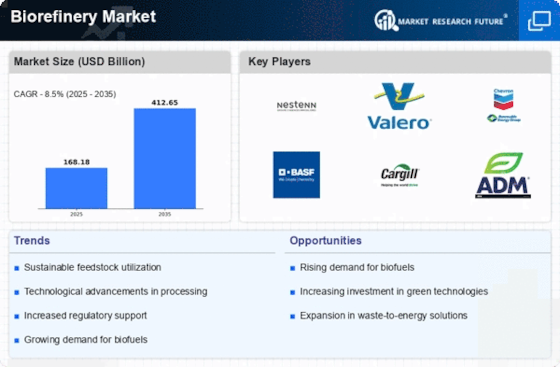Market Trends
Key Emerging Trends in the Biorefinery Market
The Biorefinery market is presenting exquisite differences as the sector steadily embraces sustainable and eco-friendly answers. A rising trend in the Biorefinery market is the mixing of superior technology to decorate efficiency and output. Moreover, the market is experiencing escalating attention to the idea of including biorefineries. Integrated Biorefinery fashion's goal is to optimize the usage of biomass resources by way of incorporating more than one process inside an unmarried facility. This technique permits the manufacturing of diverse bioproducts from equal feedstock, improving universal aid performance and minimizing waste. Integrated biorefineries can produce biofuels, chemical substances, and different high-price products, contributing to a greater sustainable and economically viable operation. This trend is gaining traction because the industry seeks complete solutions to cope with the challenges of biomass usage. The Biorefinery market is also impacted by the rising collaboration between industries and stakeholders across the value chain. Partnerships among Biorefinery operators, feedstock providers, technology providers, and end customers have become more commonplace. These collaborations facilitate information trade, generation switch, and the establishment of green supply chains, fostering a conducive environment for the improvement of the Biorefinery field. The trend towards collaboration displays the popularity that a holistic and cooperative approach is essential to triumph over the complex challenges associated with biorefinery operations. Furthermore, the marketplace is responding to the demand for sustainable packaging and biomaterials. Biorefineries are steadily generating bio-primarily based substances as options to standard plastics and packaging substances derived from fossil fuels. As industries attempt to reduce their environmental footprint and embrace round economy standards, biorefineries are poised to play a crucial element in shaping the future of sustainable resource usage and production.



















Leave a Comment